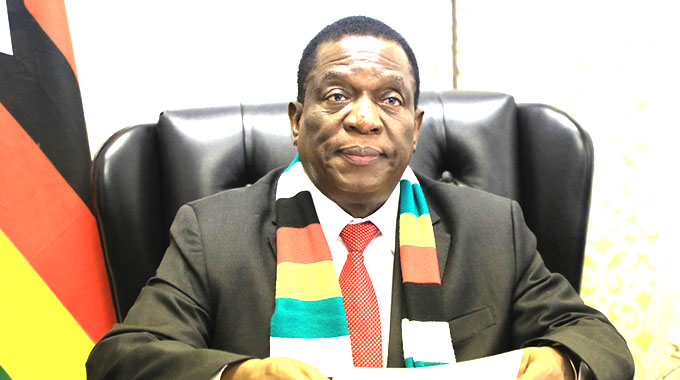Policy gaps costing the country billions

Beaven Dhliwayo Correspondent
More wealth leaves the country every year than it enters and the rest of the world is profiting more than most Zimbabwean citizens from the country’s wealth.
There are policy flaws in the gold, diamond sectors, Money Laundering and Proceeds of Crime (Amendment) Bill and at the Zimbabwe Revenue Authority that needs amendments or complete overhauling.
Gold Sector
Currently, the country is producing close to 100 tonnes of gold, but the strategy at the country’s sole buyer of the gold Fidelity Printers and Refinery (FPR) is making the bulk of that to be lost to the black market as small-scale miners, who are the main producers in the country are finding alternative markets.
Last year, deliveries at FPR, amounted to 33,4 tonnes. Small-scale miners are shunning the official channels and prefer to sell their proceeds to the black market which pays 100 percent in United States Dollars (USD).
FPR pays 55 percent of proceeds in US dollars and the rest in local currencies a situation that is making the country lose millions to under-declaration and smuggling.
The central bank should consult the miners and come to an agreement before pegging the USD retention threshold.
The policy at the central bank is responsible for low bullion deliveries and it is failing to come up with robust ways to handle the buying of the precious mineral.
There is also need to open up to other players to buy gold from miners to give room for competition and reduce the risk of losing the gold to foreign lands.
FPR should also desist from allegations that it is paying 90 percent in USD to some agents yet giving a raw deal of 55 percent in USD to major producers.
There is also need to include primary producers in Reserve Bank of Zimbabwe (RBZ), Aurex and FPR boards.
The same people on the boards are responsible for the buying of gold in FPR and allocation of funds, and there is suspicion that they can manipulate the whole system at the expense of the country.
Diamond Policy
On the diamond policy, Government should swiftly scrap off the 51-49 percent ownership in the platinum and diamond sector.
President Mnangagwa amended the Indigenisation Act which led foreign-owned businesses to cede 51 percent of their shares to Zimbabweans. The requirement was removed in all the economic sectors except for platinum and diamonds.
The two minerals are capital intensive industries and by their nature require lots of money which foreign investors have, but are being deterred by the 51-49 percent policy and should be revised in line with other metals.
Opening up the extractive sector will allow for more capital injection.
Zimra Policies
The Zimbabwe Revenue Authority policies also need amendments and overhauling as the country is losing millions through tax evasion and avoidance by businesses in the country especially at the borders.
The authority should institute sound measures to plug in financial irregularities and put in check corrupt activities at the borders. There are allegations the revenue collection agency is aiding smuggling of goods through the borders and this is costly to the country in lost revenue which can be useful for development.
This should be put to an end.
The authority should educate businesses so that they are tax compliant and close the information gap existing in the country in terms of taxation.
ZIMRA has potential to raise over $8 billion if it could achieve 100 percent tax compliance, over double the current rate, according to the Zimbabwe Coalition on Debt and Development (Zimcodd).
“If ZIMRA is able to raise $2,411 billion at 30 percent tax compliance, it has the capacity to raise over $8 billion at 100 percent tax compliance. This is more than twice Government expenditure for January to June 2018.
“This would mean additional funding for public services and achieving a Budget surplus. It implies that the country has the potential to mobilise resources domestically and finance its own development, and redistribute through the allocation at least five percent of the national revenues raised in any financial year to provinces and local authorities as provided for under section 301, subsection 3 of the Constitution of Zimbabwe,” says Zimcodd.
Asset Declarations
As enshrined in Section 198 of the Constitution, holders of public office are expected to make regular declarations of assets, but in this country, these declarations are not in the public domain.
Many countries that make asset declarations make sure information is available for public scrutiny.
Public access to declarations multiplies their anti-corruption value, as civil society and journalists often play a crucial role by uncovering irregularities and triggering formal verification of declarations by anti-corruption or asset declaration agencies.
Public disclosure of private assets of public officials and family members does not clash with the rights to privacy and data protection. Both rights are not absolute and can be restricted provided there is a basis in law and a legitimate public interest justifies the restriction.
Section 198 of the Constitution provides for regular disclosure of assets and Standing orders 49 and 48 of the National Assembly and Senate state that every member shall and may not, register all his or her financial interests in a book to be maintained under the direction of the Speaker and President of the Senate.
Prevention of corruption and exposing unexplained wealth of officials are serious and legitimate public interests. While public access can raise valid concerns, the benefits outweigh the costs and any interference with privacy rights in the declaration is proportionate to the public interest.
Online disclosure of public declarations has been introduced in many countries and is essential if public servants are to be held to account.
Plugging Money Laundering
Government should also ensure that the Money Laundering and Proceeds of Crime (Amendment) Bill meant to curb money laundering and plug mineral leakages in the country is enforced without fear or favour.
The country should urgently address the Bill’s shortcomings as pointed out by the Eastern and Southern Africa Anti-Money Laundering Group (ESAAMLG) through a peer review procedure, Mutual Evaluation Process.
Zimbabwe is a founding member of the (ESAAMLG), an 18-member state regional body dedicated to fighting cross border illicit flow of funds, terrorism financing and proliferation of weapons of mass destruction.
The peer review body identified areas where the country’s laws and institutional arrangement needed to be urgently adjusted to comply with the 40 Financial Action Task Force recommendations.
This is in line with international standards of anti-money laundering and countering the financing of terrorism as developed by the Financial Action Task Force, the global standards setting body.
The central bank should team up with local banks in the implementation of Money Laundering and Proceeds of Crime Act requirements.
The RBZ’s Financial Intelligence Unit must be in full force and alert all the time to ensure compliance by DNFBPs, (banks and designated non-financial businesses and professions), through invocation of administrative penalties prescribed under the Money Laundering and Proceeds of Crime Act.
Lost revenue through illicit financial flows (IFFs) has far reaching consequences on the fulfilment of social and economic rights as it hinders Government’s ability to fund critical economic areas.
In a statement last year, Zimcodd said IFFs were affecting ordinary Zimbabweans who are struggling to get access to health, food, education and other social services.
“These lost revenues have far reaching consequences on the fulfilment of social and economic rights of the generality of Zimbabweans.
“The primary implication of resource leakage is budget deficit and subsequently the inability to adequately fund education, health, agriculture, water and sanitation.
“The $1,4 billion externalised funds acknowledged by the Government was sufficient to finance the entire budget for education ($905,5 million), health ($409 million) and transport infrastructure ($87,5 million),” says Zimcodd.
Zimcodd added that, given the continued occurrence of IFFs, there was need to strengthen citizens’ oversight role in guarding against illicit financial and resource flows as most resources are reportedly being siphoned out from resource rich communities.
The leakages are mostly noticeable in the diamond and gold sectors where the minerals find their way to the parallel markets in South Africa, Mauritius, and even as far as the United Arab Emirates.
Such leakages deprive Government of the much-needed revenue.
In Zimbabwe, IFFs have been rampant in the mining, fisheries, timber and wildlife sectors. A study in 2014 found that at least $2,85 billion could have been moved out of the country through illicit financial flows in the period 2009 to 2012.
The Government ought to step up its efforts in the fight against IFFs by way of anti-avoidance provisions, especially towards aggressive tax planning structures in line with the current transfer-pricing framework that was introduced into the Zimbabwe tax law as of January 1, 2016.
Certainly in these challenging economic times, the country need to remain convinced of the merits of the policy amendments.
The country’s positive economic experience over the last decade in the face of stressful times for the global economy, is strong evidence that tight polices will move the country forward.
Zimbabwe needs to show determination to stick with these policies which will be of great significance in unlocking value to the economy.








Comments